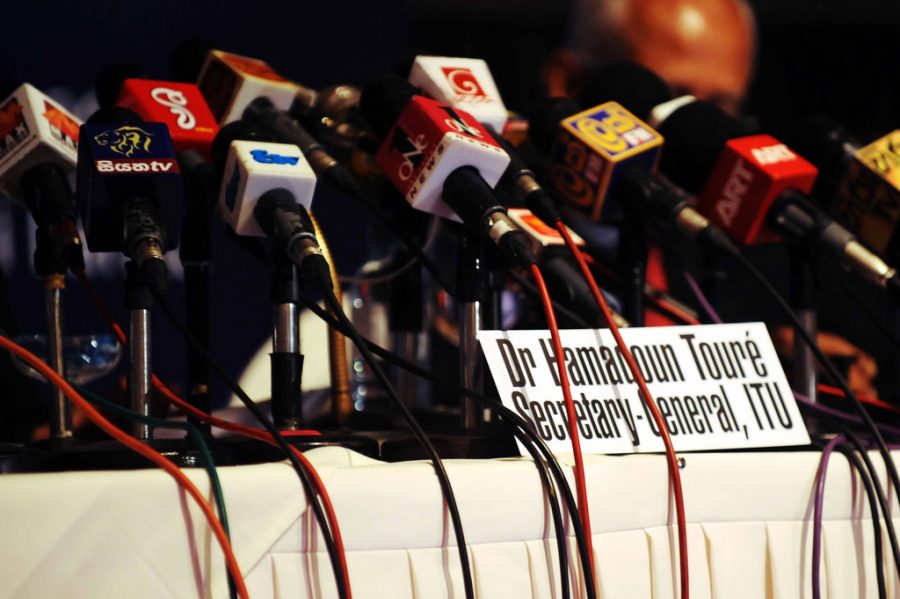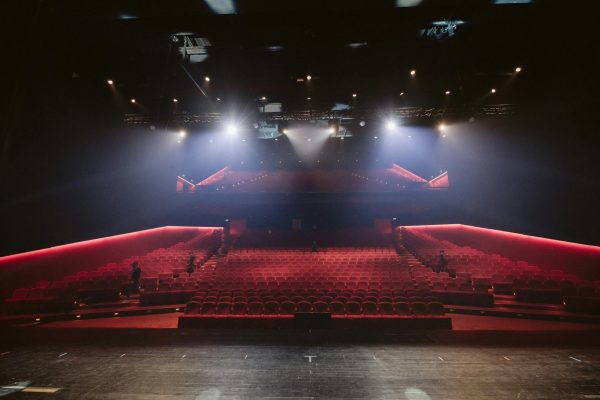An Exciting Collaboration between Nations – FIS Model United Nations
Working together between nations is something that is globally very important and here at FIS especially close to home. Thus, Model United Nations is the perfect opportunity to represent this international collaboration and on May 24, FIS welcomed a group of students for a conference. Below you can find extracts from the newspaper written for the delegates, the students involved in this MUN conference.
An Introduction to Model United Nations – Delphine Siegel and Abibat Tijani
FISMUN, also known as the Junior MUN, involves students ranging from grade 4 to 7, debating global issues. The Model United Nations Club (MUN) decided to have two committees: Environment and Human Rights. The debates are focused on the topics that all the students are aware of; ‘Managing global water supply and water scarcity’, in the Environment committee and ‘Expanding educational opportunities for children and women in LEDCs’, in the Human Rights Committee. As this is our school’s first MUN conference, many of the student officers were very excited to help organize this for the younger years. The chairs for the Environment Committee are Marcus Grunnesjö (Grade 10) and Jessica Butler (Grade 10), who are also going through this experience as chairs for the first time. When asked what Marcus Grunnesjö believed a chair’s role would be, he answered “Chair’s’ role is to moderate debate but makes sure everyone is having fun and that delegates feel comfortable with speaking in front of others and aren’t afraid to speak up.” Some tips that Jessica Butler suggested was to “ask as many questions as you can if you’re too shy to ask send a note to the chair or as the admin, speak as much as you can and if someone is being negative just try to be extra nice. If someone seems to be struggling, try and be as friendly and as supportive as you can. I’d rather have 50 alright-ish delegates rather than 2 or 3 amazing delegates.” Evan Brewster, chair of the Human Rights Committee, (Grade 11), has shared his thoughts about him being a first-time chair as well, “I am most excited to see what kind of solution the delegates will give for our committee, and I am most nervous to see if I can control my children [the delegates]”. Gabriela Parra (Grade 11) will also be sitting next to Evan Brewster in the Human Rights Committee. Yolanda Parra, a United States diplomat, has also humbly agreed to be our guest speaker to help the new delegates start their MUN journey. We look forward to seeing these young students experience their first conference and learn a lot along the way!
An Exciting Start – Mihiro Shimano, Geeju Kwon, Abibat Tijani and Delphine Siegel
From early in the morning, delegates came in with excitement for the conference to begin. Separated into their committees of Human Rights and Environmental they started off by receiving help from rapporteurs and chairs. At 9:00, opening speeches began, each student listening attentively to each other. Delegates presented problems within their country or solutions in helping others, giving statistics and well-researched background information.
Enno Michalik (Grade 4) who is part of the Human Rights Committee representing Mexico, has given his thoughts about this event:
What was the process of preparing this conference like for you? “It was awesome, I learned what to do during our training sessions. I researched well, prepared speeches and clauses on my own and had my mom helped me review them.”
Did you find the researching difficult? “Um, a little… yeah.”
Have you been enjoying MUN so far, like the process and the conference? “Yes”
What are you looking forward to in this conference? “To do better and do everything I can do.”
Do you see yourself continuing MUN? “Yes, I want to.”
Florian Glanz (Grade 6) who is part of the Human Rights Committee representing the United Kingdom, after making his Opening speech:
Were you nervous up there? “Yeah, a little bit”
Did you practice a lot? “Not that much, about an hour or so”
Did you have any difficulties researching? “Researching wasn’t very difficult. Because Unite Kingdom/ England is a big country and did a lot of research. So, yeah, researching wasn’t a problem”
Are you excited for debate? “Yeah definitely!”
Welcome Wiesbaden Students!
Students from the FIS Wiesbaden Campus were also able to collaborate the FIS students.
Haley Pearson (Grade 7-Wiesbaden) who is part of the Environment Committee representing United Arab Emirates, has given her thoughts about the conference and her time here in FIS:
How is your experience here so far? “Although, I don’t fully understand all the processes and how everything works, I think the conference has been really organized. It is more advanced than I thought”.
Have you been enjoying this experience? “Yeah, its been nice so far.”
Do you see yourself doing MUN in the future? “Yeah, it is a good learning experience.”
What is the environment here in FIS compared to the one in Wiesbaden? “It is a very big school, which is kind of intimidating, but I think we have the same standards, so it does have a similar environment to the one in Wiesbaden.”
Donghyeok Ku (Grade 8 – Wiesbaden), Adrian Reinsdorf (Grade 5), and Mathew Runciman (Grade 8 – Wiesbaden) who is part of the Environment Committee, have given their thoughts about the first FISMUN conference:
How was it leading up to the preparation for this MUN conference?
“I felt like it was not that hard but definitely not easy.”
“It wasn’t that hard researching but organization was hard.”
“For me it was opposite. The information was hard because I needed to find economic information. But organization was easy. So, yeah the research was hard.”
If you had the chance to do MUN again in the future, would you do it again?
“Probably yes, but in Human rights!”
“Maybe”
“Yes, it seems fun”
Diplomacy FISMUN’s First Glance by Anna Ramsay (Grade 11), Lauren Sauerland (Grade 11), Mihiro Shimano (Grade 10), Geeju Kwon (Grade 10), Abibat Tijani (Grade 10), and Delphine Siegel (Grade 10)
Kanika Birla (Grade 11), this year’s secretary General, has told us how her experience in MUN is:
How did you get involved in MUN? “I began MUN 3 years ago and I just went to my first meeting and fell in love.”
How long have you been participating in MUN? “For 3 years, and I have been in 8 conferences”
What are you most excited about this conference? “I am excited for everything, there is nothing I am less excited about. I am excited so everyone debate, I am excited how everything works.”
Do you have any tips for new delegates? “Stay engaged, participate and it is okay to make mistakes.”
Do you think MUN inspires to pursue a degree in a related subject? “I think MUN is what really made me pursue my passion for history, economics, and social studies.”
Karina Strauch (Grade 10), our Deputy Secretary General, has also kindly told us about her experience in MUN:
How did you get involved in MUN? “I first got involved in MUN because my brother was doing it, but then after a while I got more engaged because Ms. Nater is a great inspiration to me to keep on going.”
How long have you been participating in MUN? “I have been participating in MUN for 2 years now.”
What are you most excited about this conference? “I am most excited about seeing all the delegates and all their accomplishments and seeing it all come together.”
Do you have any tips for new delegates? “Just take risks and do the best that you can, no one expects you to be perfect. We just hope that everyone tries their hardest and feel accomplished.”
Do you think MUN inspires to pursue a degree in a related subject? “Yes, I think MUN helps with any and all types of subjects and I think it can really help with communication skills and bringing across your ideas”
Kitty Cao (Grade 9), is the rapporteur for the Environment Committee, talked about her role and her journey:
What is your role as a rapporteur? “As a rapporteur, I go around in the committee and help to solve any question the delegates have on the topic or the issues at hand.”
How did you get involved with MUN? “I got involved in MUN when I was still in 6th grade, my history teacher recommended me to join the MUN club at the time, and I got into it and it has been such a fun and new experience for me.”
What roles have you played in conferences? “I have only taken the role of a delegate in my past conferences, but I am going for more challenging positions in the future.”
What are you looking forward to do next school year at MUN? “I look forward to join even more conferences, but I am also going to apply for positions such as chairs because that would definitely be a really fun and fresh experience for me.”
Would you be interested in pursuing a global politics course at FIS? “I would love to pursue one, I am sure taking the course would help me to explore even more into areas that I haven’t study before.”
To each of the chairs, the position means giving the debate a direction; “Our role as head chairs”, Parra stressed, “is not about leading the group, but rather allowing them to lead it themselves”. Furthermore, this involved keeping the debate civilised and professional, something that was not much required from our head chairs. Both agreed today’s debate was “highly professional”, in which “many great arguments were presented and thus debated”. That being said, Brewster and Parra both recognise Model United Nations as a group for developing leadership and communication skills, and this conference was no exception. “It is inspiring”, Brewster voiced, “to see young aspiring delegates who will one day be leading MUN. These delegates are the future. It is too inspiring to see their improvement”. Following this, we asked about their career and university aspirations following their involvement in MUN conferences and how this may apply to younger delegates. Both hope to study law. To Parra, MUN meant improving her speaking abilities in front of an audience, while Brewster links his urge to study law with debating on subjects such as Human Rights, thus sparking his interest in the legal system. In addition, both hope to take part in any debating groups offered in their universities to further develop their skills.
Furthermore, both chair heads feel that MUN has not only improved their debating skills, but also helped them through school. “Confidence in speaking is something I used to feel self-conscious about”, Parra noted, “but I think MUN gave me a set of skills that I can apply to my school courses and in my life”. Similarly, Brewster saw that his involvement in the extracurricular reflected positively on his academic performance and allowed him to develop friendships with other MUN members.
A Summary of the Important Aspects of MUN by Anna Ramsay (Grade 11), Lauren Sauerland (Grade 11), Mihiro Shimano (Grade 10), Geeju Kwon (Grade 10), Abibat Tijani (Grade 10), and Delphine Siegel (Grade 10)
Environment Committee
In the Environment Committee, the issue of water scarcity around the world was being talked about. Every delegate in the room has all agreed upon tackling the issue with only minimal disagreements. Delegates such as Ecuador has suggested on using natural energy sources to be able to create clean water. Many delegates have suggested similar solutions but all comes back to the same question “How is our country going to pay for this?” Which shows how these delegates are able to look at the bigger picture and can see how solutions may only create new problems.
Human Rights Committee
In the Human Rights committee, the issue of education for women and children were tackled. Delegates such as Ghana presented the benefits of education as the best investment in a country and a help in the reduction for poverty. Another, the delegate of Columbia stated clearly that “Education is a vital human right”. Often it was forgotten that some of the delegates were from elementary as students spoke confidently “like future presidents”, said Press member, Geeju Kwon.
Lobbying and Debate
During lobbying, the delegates are able to walk around and cooperate with other delegates in their committee to merge, in which they see if they can improve their clauses by combining another delegate’s clause, and to help and read the works of other delegates. After the delegates have been able to talk with others about their clause, they can debate and show their work.
All in all, the FIS MUN conference was a success and everyone involved seemed to have fun!





Clara • Aug 16, 2017 at
I agree and can relate to this article. I myself did Junior MUN this year and it was very fun. I’m looking forward to do it again this year and I would really recommend this to other people. For all the students who chose not to do Junior MUN, I really appreciate that there are all these amazing articles explaining how it went this year to maybe change their minds.